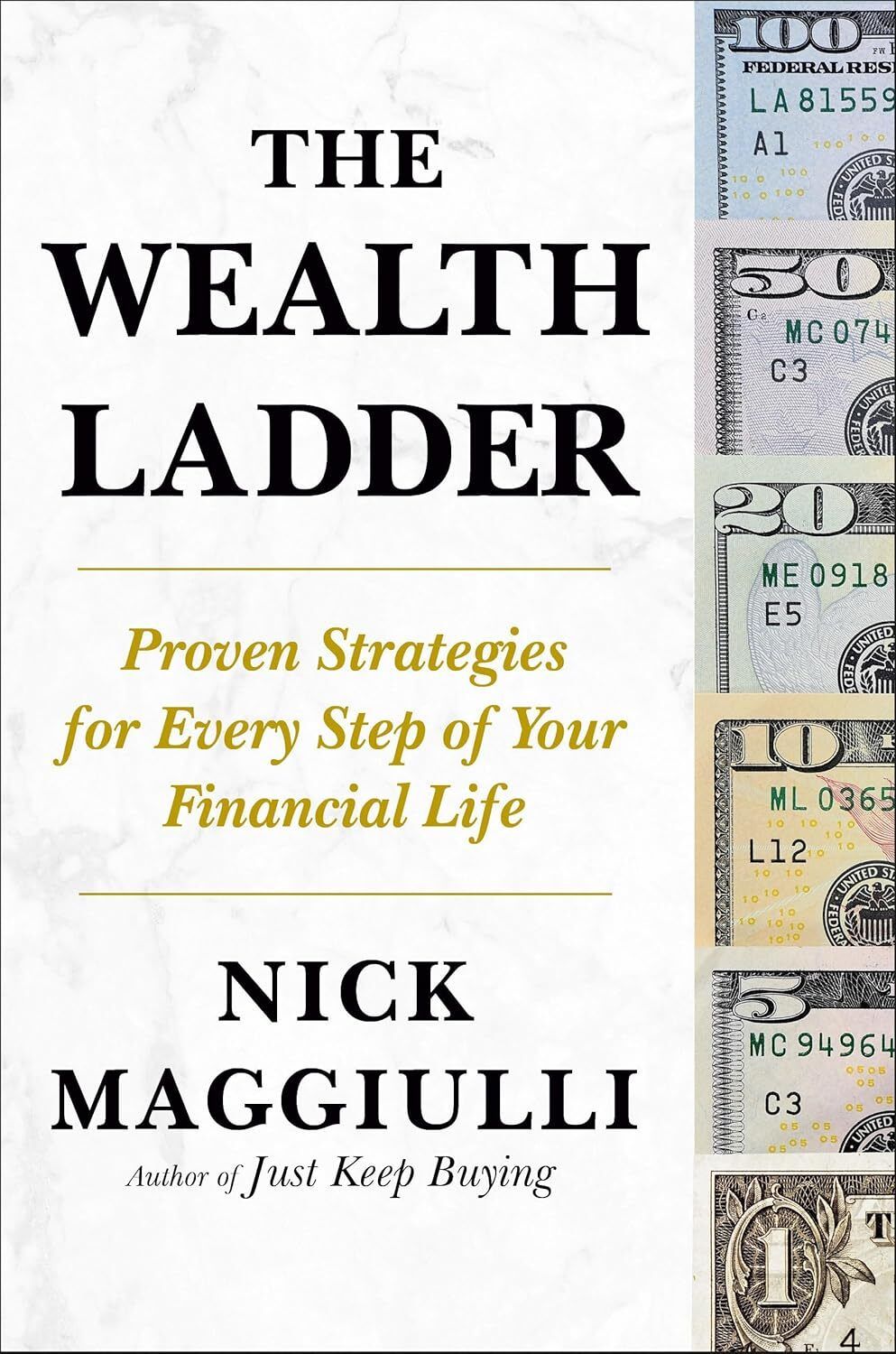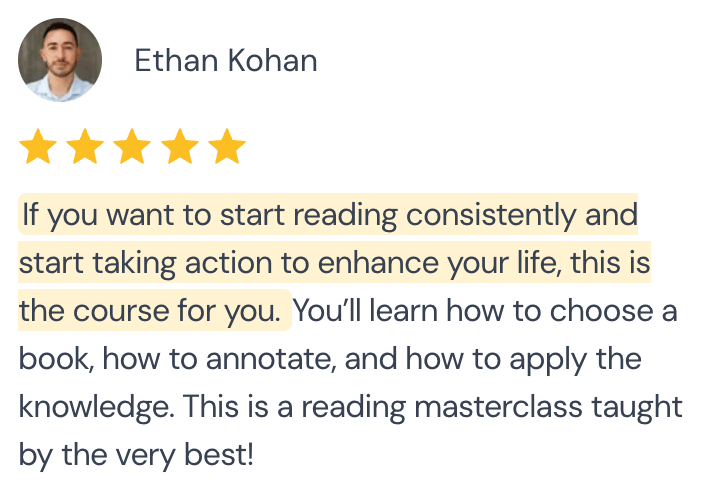- Alex & Books Newsletter
- Posts
- 📚 The Wealth Ladder, Science Proves Audiobooks Count As Reading, and more.
📚 The Wealth Ladder, Science Proves Audiobooks Count As Reading, and more.
A&B #252
👋 Hey everyone,
Here are a few popular posts you may have missed:
This week’s newsletter was made possible by:
Create How-to Videos in Seconds with AI
Stop wasting time on repetitive explanations. Guidde’s AI creates stunning video guides in seconds—11x faster.
Turn boring docs into visual masterpieces
Save hours with AI-powered automation
Share or embed your guide anywhere
How it works: Click capture on the browser extension, and Guidde auto-generates step-by-step video guides with visuals, voiceover, and a call to action.
📚 Books Summary:
This week's book is “The Wealth Ladder” by Nick Maggiulli.
In this book, financial writer and data scientist Nick Maggiulli breaks down wealth into 6 levels (from $0 to $100M+) and shares investment strategies for every stage.
He also covers the relationship between money and happiness, and what science has to say about the topic.
If you liked his first book, “Just Keep Buying” or “How to Get Rich” by Felix Dennis, you’ll enjoy this book.
Here are 3 key lessons from it:
📖
1) The 6 Levels of Wealth
One of the main ideas of this book is that wealth isn’t a straight line, it’s a ladder.
And at each level, how you earn, spend, and invest money changes dramatically.
Here are the 6 levels:
Level 1: Lower class ($0 - $10k)
Paycheck-to-paycheck: You are conscious of every dollar you spend. This includes people with cripping debt.
Level 2: Working class ($10k - $100k)
Grocery freedom: You can buy what you want at the grocery store without worrying about your finances.
Level 3: Middle class ($100k - $1M)
Restaurant freedom: You can order what you want at restaurants.
Level 4: Upper middle class ($1M - $10M)
Travel freedom: You travel when and where you want.
Level 5: Upper class ($10M - $100M)
House freedom: You can afford your dream home with little impact on your overall finances.
Level 6: The superrich ($100M+)
Impact freedom: You can use money to have a profound impact on the lives of others (buy businesses, engage in large-scale philanthropy, etc.).
And here’s what percentage of adults are in each level worldwide:
Level 1: 39.5%
Level 2: 43%
Level 3: 16%
Level 4: 1.4%
Level 5: 0.09%
Level 6: 0.0003%
These stats surprised me–it means if you have a net worth of even $100,000, you’re richer than 82.5% of people in the world.
If you spend a lot of time on social media, it can look like everyone’s a multi-millionaire.
But in reality, if you have a net worth of one million dollars, you’re richer than 99% of people in the entire world.
And most millionaires aren’t in their 20s like it might seem on social media. The typical millionaire is in their 60s. The median age of those in Level 4 ($1M-$10M) is 62 years old.
So maybe consider for a moment that you’re actually doing much better in life than you originally thought.
And if you aren’t, realize you still have a lot of time left to become successful.
📖
2) The 0.01% Spending Rule
If you find yourself debating or stressing a purchase, try following Nick’s 0.01% Rule.
His advice is that if a purchase is 0.01% of your net worth (or less), the decision you make doesn’t really matter.
For example, if your net worth is $100,000, you shouldn’t worry about decisions that cost $10 or less.
So if you’re at a restaurant debating between getting a burger for $20 or the salmon for $30, pick either one. Or if you’re at the grocery store and you’re debating whether you should buy pasture-raised eggs for an extra $3, go for it.
Or let’s imagine you’re rich and worth $100M.
You shouldn’t stress over any decision that costs $10,000 or less. Even though it might seem like a lot of money (and in some sense it is), to you it’s only 0.01% of your net worth.
And the numbers only get crazier from there.
So when people like Jeff Bezos spend $50 million on a wedding, it may seem crazy to most people. But in reality, it’s the equivalent of someone worth $150,000 spending $32 on their wedding. So it’s no surprise Bezos isn’t stressed about that price tag.
📖
3) The Relationship Between Money & Happiness
One of the most interesting chapters in the book is “Does Money Buy Happiness?”
Here’s a summary of the chapter from Nick:
“Money can buy happiness, but not in every circumstance…If you are poor, more money will probably make you happier. If you are happy, more money will probably make you happier. But if you aren’t poor and you aren’t happy, more money won’t do a thing.”
In other words, if you’re in Levels 1 or 2 ($0 - $100k), more money will almost certainly make you happier.
But if you’re in Levels 3-6 ($100k - $100M) and you’re miserable, more money is unlikely to be the solution.
So instead of thinking that more money is better, think of it as getting diminishing returns.
At first, small increases in wealth lead to big jumps in happiness. However, as your wealth increases, you need even bigger jumps in wealth to get the same happiness boost.
For instance, if someone has a net worth of $10,000 and they win $50,000 from a lottery ticket, that’s life-changing for them. But if someone has a net worth of $10M, winning $50,000 won’t dramatically increase their happiness.
And there are easier ways to increase your happiness than money.
Neuroscientist Dr. Matthew Lieberman researched how much additional income you would need to have the same well-being for various scenarios.
He found that:
Seeing a friend on most days was worth making an extra $100,000 per year.
Being married was worth an extra $100,000 a year.
Being in good physical health was worth an extra $400,000 a year.
So if you live close to a good friend, are married, and have your health, that’s the equivalent of making $600,000 a year.
If that’s you, I’d say you’re wealthy and living a pretty darn good life already.
✅ Actionable Advice
1) There are 6 levels of wealth, and you’re probably richer than you think:
The most common age for a millionaire is 62 years old.
2) When it comes to spending money, follow Nick’s 0.01% Rule:
Don’t stress over buying something that costs you 0.01% of your net worth (or less).
3) Money can make you happier, but it has diminishing returns:
If you’re rich and unhappy, more money isn’t the solution. Perhaps try making more friends, getting married, or improving your health.
💎 Weekly Gem:
Podcast: How Nature & Other Physical Environments Impact Your Focus, Cognition & Health | Dr. Marc Berman
This is a mind-blowing podcast about the impact of nature on our physical and mental health.
The TL;DR is that you want to spend as much time in nature as possible. Spending time in nature increases your attention, focus, creativity, and has many other health benefits.
Do yourself a favor and listen to this podcast (preferably while walking in nature).
Your opinion matters!
What did you think of this week's newsletter? |
Thank you for your support,
Alex W.
PS: Want to become a better reader in just 2 hours?
The Art of Reading is my flagship course that will teach you how to read more and better. You’ll learn how to find time to read more books, stay focused while reading, remember more of what you read, take notes in books, use AI to become a better reader, and so much more. Join 650+ readers here.




Reply